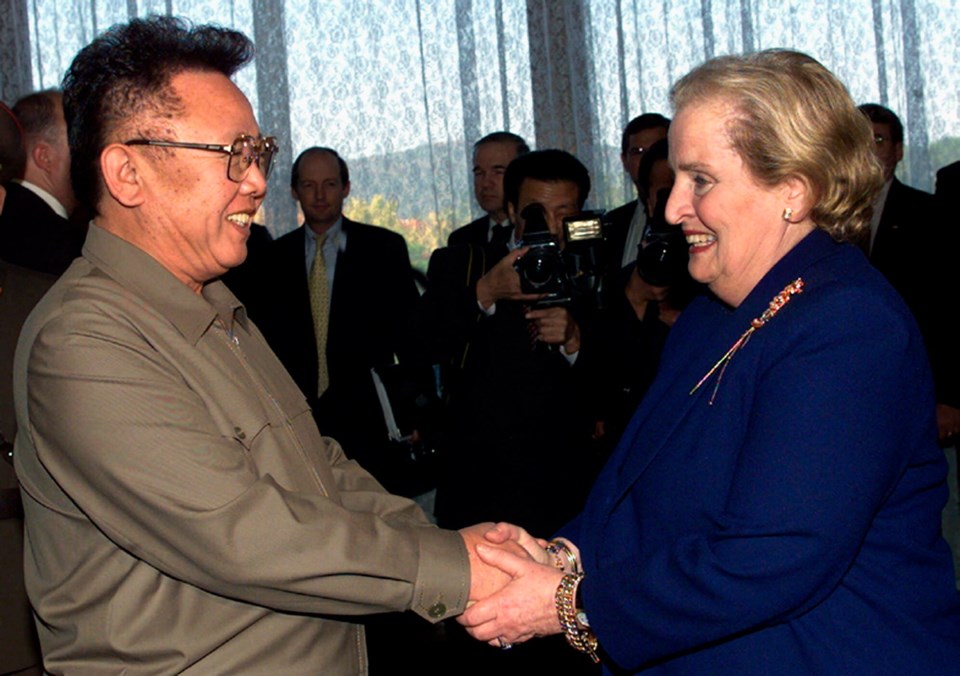As we anticipate Tuesday’s summit between U.S. President Donald Trump and North Korean leader Kim Jong Un, there is great optimism and hope for peace.
For 65 years, Koreans have longed to have their families and their country reunited. Because the truce of 1953 did not advance to a peace treaty, North Korea and the U.S. have continued in a state of war. Koreans want a peace treaty, denuclearization of the Korean Peninsula and reunification of North and South.
While Trump was deciding whether to hold the summit, the leaders of North and South Korea were already taking steps to build peace themselves. In fact, two historic events unfolded in the Demilitarized Zone on May 26.
The first was a women’s peace march. I walked with 1,200 women across the Reunification Bridge to a peace park in the DMZ. The mayor of Paju told us this was the first time civilians had crossed the bridge on foot. Hundreds of women sang and danced in a spiral, holding bright, silky banners overhead. Nobel Peace laureate Mairead Maguire addressed the crowd, along with local dignitaries. I sat in the shade, revelling in their sense that Korea has entered a new era.
Meanwhile, a second historic meeting between Korean President Moon Jae-in and Kim was happening a short distance from us in Panmunjom. The TV images of the two leaders jubilantly hugging matched the celebrations of the women in the park.
Women have played a significant role in the movement toward peace. In 2015, an international group called Women Cross the DMZ met with 7,000 women in Pyongyang and Kaesong City in North Korea, then crossed to Seoul where they met thousands more women calling for peace. At that time, the public mood was not very receptive and they faced a small group in Seoul who protested against their work.
When I joined the group this year, the atmosphere had changed to one of great optimism and hope for peace. The activities of Women Cross the DMZ and its leader, Christine Ahn, drew massive media coverage in Korea and internationally.
As peace negotiations progress, it is now essential that women be fully engaged in the talks. When women have been active participants in peace negotiations elsewhere, the negotiations have been far more likely to succeed, and the agreements more likely to hold for more than 15 years.
As Korea moves to reunification, it faces many issues and obstacles, not the least of which is the importance of concluding a peace treaty with the U.S. Twenty-four countries were engaged in the Korean War. Now that there is movement toward peace and denuclearization, those countries have an obligation to support the treaty process to end the war and allow the Korean people to exercise their sovereignty over the peninsula.
The train to peace has already left the station. It’s time for the U.S. and the rest of the world to get aboard.
Dr. Mary-Wynne Ashford of Victoria is a past co-president of the International Physicians for the Prevention of Nuclear War.



